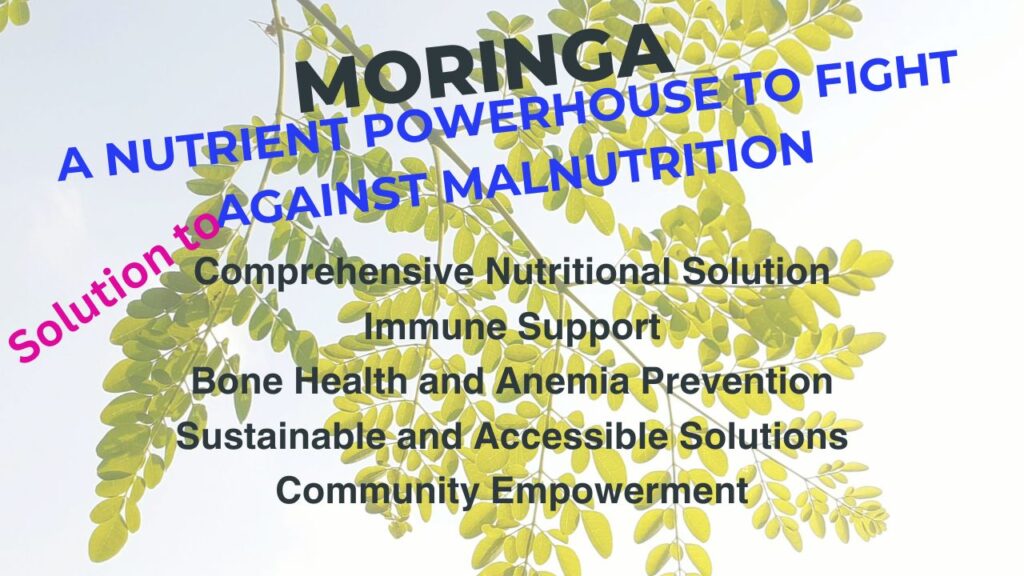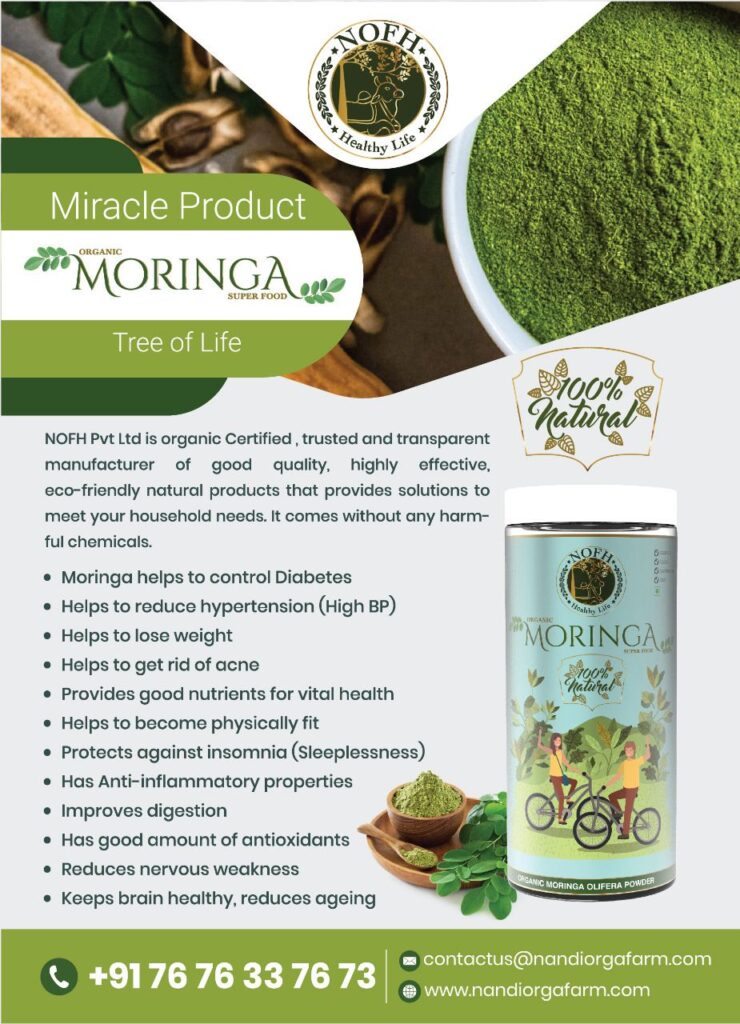Moringa stands as a nutrient powerhouse with the potential to transform the landscape of malnutrition globally. Moringa is a source of vitamin A, vitamin C, calcium, potassium, and iron, making it a comprehensive solution to nutrient deficiencies.


Malnutrition is a complex health issue characterized by an imbalance, deficiency, or excess of nutrients in the body, leading to adverse effects on health. It encompasses both undernutrition (insufficient intake of essential nutrients) and overnutrition (excessive intake of certain nutrients), each posing significant health risks. Malnutrition remains a critical global health issue, affecting millions of people, especially in vulnerable communities. Amidst the challenges, an unassuming plant is emerging as a powerful ally in the fight against malnutrition—Moringa.
Moringa, often referred to as the “drumstick tree” or “miracle tree,” is celebrated for its exceptional nutritional content. Its leaves are rich in essential vitamins, minerals, and antioxidants. Moringa is a source of vitamin A, vitamin C, calcium, potassium, and iron, making it a comprehensive solution to nutrient deficiencies.
Protein Deficiency: Protein deficiency is a common aspect of malnutrition, especially in regions where access to protein-rich foods is limited. Moringa leaves contain all nine essential amino acids, making it a complete protein source. The plant’s ability to provide high-quality protein makes it an invaluable resource in combating malnutrition-related protein deficiencies.
Vitamin A and C for Immune Support: Vitamin A and vitamin C are crucial for a robust immune system, playing a pivotal role in preventing infections and diseases. Moringa is a potent source of these vitamins, offering a natural and accessible way to boost immune function, particularly in populations vulnerable to malnutrition-related illnesses.
Calcium and Iron for Bone Health and Anemia Prevention: Malnutrition often leads to weakened bones and anemia due to deficiencies in calcium and iron. Moringa contains substantial amounts of both minerals, promoting bone health and aiding in the prevention and management of anemia. Integrating Moringa into diets can contribute significantly to addressing these health concerns.
Sustainable and Accessible Solutions: One of the key advantages of Moringa in the fight against malnutrition is its adaptability to diverse climates and soil conditions. The plant is relatively easy to cultivate, requiring minimal resources. This makes Moringa a sustainable and accessible solution for communities facing food insecurity and malnutrition challenges.
Community Empowerment through Moringa: Beyond its nutritional benefits, Moringa presents an opportunity for community empowerment. Local cultivation and processing of Moringa create economic opportunities, providing communities with a sustainable source of income and fostering self-sufficiency.
Moringa stands as a nutrient powerhouse with the potential to transform the landscape of malnutrition globally. Its rich nutritional profile, adaptability, and economic empowerment opportunities make it a compelling ally in the ongoing fight against malnutrition. As we explore innovative solutions to address global health challenges, Moringa emerges as a natural and sustainable resource that holds promise for a healthier, more nourished world.


Basaiah Hiremath
Founder, Director
NOFH Private Limited
2462, 25th A Main, 14th A Cross,
HSR Layout, Bengaluru – 560102.
Ph: +080 22586590
contactus@nandiorgafarm.com, www.nandiorgafarm.com













